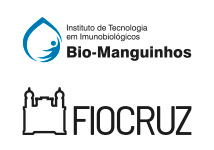Even physical distance was not able to stop cooperation between countries and institutions during the COVID-19 pandemic. On the contrary. The Fiocruz International Activities Report 2019-2021 shows an intense action by the Foundation in this field during the period, not only with the technology transfer contract that made possible the production of the vaccine with 100% national IFA against the disease, through the Institute of Technology on Immunobiologicals (Bio-Manguinhos/Fiocruz) but also with an even closer relationship with other national health institutes and multilateral organizations, for example.
Organized by the Center for International Relations in Health (Cris/Fiocruz), the 105-page report is based on information provided by Cris himself, by the Technical Chamber for International Cooperation, and other institutes of the Foundation. "The network articulation fostered internal, national, and international partnerships, stressing the importance of cooperation in times of crisis and emergencies. It is worth noting that international cooperation suffered great losses with travel restrictions and physical distancing", says the report.
Cris/Fiocruz coordinator, Paulo Buss, emphasizes, however, that the scientific world was able to quickly adapt to this reality, using technological mechanisms for distance communication. He highlights the intensification of ties "particularly between the national health institutes, which are today the equivalent of Fiocruz in Latin America and in the Community of Portuguese-speaking Countries (CPLP), one of the main focuses of our cooperation". "Cooperation with institutions in Europe and the United States has also not stopped, especially with the National Institutes of Health (NIH) and the Pasteur Institute, as the report indicates", notes Buss.
Fiocruz faced the challenge of the pandemic by acting through different lines of action, grouped into six main axes: support for diagnosis; health care; research and production of medicines and vaccines; information and communication; support for vulnerable populations; and education. These responses, as in the agreement with Oxford/AstraZeneca to produce the COVID-19 vaccine, through Bio-Manguinhos, brought national and international projection, which translated into invitations to compose organizations/councils, research projects, and advisory groups, highlights report it.
In Health Diplomacy, the document highlights the Foundation's intensified participation in world forums, such as the World Health Organization (WHO), the United Nations (UN), and other bodies. In September 2021, for example, the president of Fiocruz, Nísia Trindade Lima, joined the board of Cepi (Coalition of Innovations in Epidemic Preparedness), a global partnership between public, private, philanthropic, and civil society institutions to finance research development of vaccines against epidemics.
Currently, Bio-Manguinhos has 41 international partnerships. In 2021, four new ones were signed, with AstraZeneca and Oxford University, Chembio Diagnostics Inc., Humasis, and GenBody, and in 2022, until September, another partnership was signed with Frenesius.
Click here to access the report.
Translation: Juliana Xavier
Image: Fiocruz


